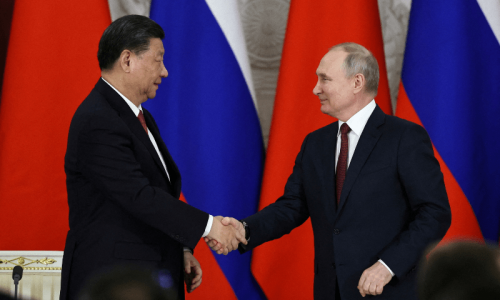KABUL: Sixteen months after the Taliban regime fell and Hamid Karzai took over as president, Afghanistan is still struggling to establish the basics of a working government. As Karzai and his US and international supporters have found, virtually every significant system in the country is broken.
The military is splintered by factionalism, the police force is untrained, the justice system is dominated by religious conservatives who have more in common with the Taliban than with Karzai, and tax collection is ineffective. Even driving rules are in disarray: Afghans drive on the right side of the road, but during the past chaotic decade, most of the cars brought into the country were designed for left-side driving — a situation that leads to many accidents but is beyond the government’s ability to fix.
As a result, when US policymakers discuss rebuilding Afghanistan, they no longer talk exclusively about new schools, roads and services for needy people. Now they talk just as much about establishing functioning government agencies and about spreading the authority of the central government beyond Kabul.
Initially opposed to the idea of “nation-building,” the Bush administration has found that it is the key to Afghanistan’s future.
“That opposition to nation-building is a fig leaf that dropped a while ago,” said the US Embassy spokesman, Alberto Fernandez. “We’re up to our ears in nation-building.”
A look at the pace and nature of reconstruction in Afghanistan over the past three months shows that the United States is often acting with a sense of urgency and that US rebuilding efforts reach into almost every aspect of Afghan life. US officials say the total budget for Afghan aid this year — excluding the cost of maintaining 8,000 US troops here — will probably match last year’s $935 million.
But the needs of the continuing US-led war effort are frequently at odds with the needs of Afghan nation-building, and the nation-building often suffers as a result, a dynamic that limits the credibility of Karzai and ministers in his government, top Afghan officials and foreign officials in Kabul say.
For instance, while spending millions to help train a Afghan national army that will become the muscle for the central government, the United States is still funding local militias and warlords that its military believes it needs in the war against Muslim extremists. Those provincial leaders are often at odds with the central government and sometimes defy its orders.—Dawn/LAT-WP News Service (c) The Washington Post.











































Dear visitor, the comments section is undergoing an overhaul and will return soon.